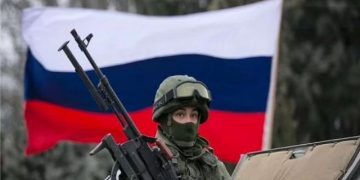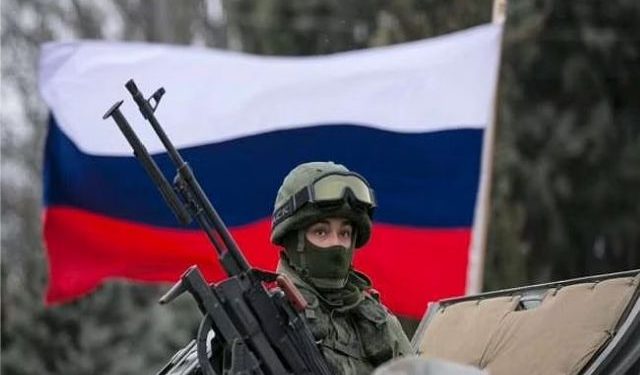CGTN
On February 24, Russian Federation launched a “special military operation” against Ukraine. Russian land forces crossed the border with Ukraine in three regions in the north, northeast and south, respectively. Cruise and ballistic missiles hit military infrastructure in and around big cities: warehouses, military barracks, command centers, anti-aircraft systems and airports. At the same time, Russian special forces air-landed near Kyiv in an attempt to penetrate capital’s defenses and disorient Ukrainian army. Another military group breached Ukraine from the Crimean Peninsula and entered Kherson region, which is the gateway to key Black Sea and Azov ports of Ukraine as well as railroad hubs and water dams.
The answer to why Russia decided to launch the operation against Ukraine stems from several levels of understanding Moscow’s interests and Russia-Ukraine relations since 2014.
Russia’s major interest was to maintain control over the internal political processes for the period of power transit. This included stabilizing the dynamics of confrontation with the West and neutralizing threats near its borders from neighboring countries, which Moscow saw as its geopolitical periphery, including Ukraine, Belarus, Kazakhstan and Moldova. This regional agenda became increasingly aggressive as post-Cold War disputes with the West intensified with NATO expansion to the east becoming a key sticking point.
On a global level, Russia’s foreign policy during the last 15 years aimed at positioning the country as an alternative center of power in the great power competition of the 21st century. In Kremlin’s views, the post-Cold War world and regional order wasn’t just or balanced as it didn’t manage to accommodate Russia’s security and economic interests. NATO was seen not as a collective defensive alliance but rather an American instrument of political influence in Europe.
Therefore, since mid-2000s, Russia has tried to convince the West to treat it as an equal security partner which would essentially allow Moscow to carve out its own sphere of influence.
In all these deliberations, Ukraine became one of matters of negotiations and a particularly tough stumbling block between Russia and the West. Ukraine’s foreign policy has always been shaped by a choice between Moscow and Euro-Atlantic Western course. It has always remained bipolar even after the bipolar world order collapsed in 1991. All this eventually led to an armed conflict in 2014.
Indeed, since 2015 after Ukraine and Russia signed the Minsk Agreements on how to resolve the conflict in Ukraine’s eastern regions, all negotiations ultimately struck a dead end.
Russia wanted Ukraine to implement the political part of the deal, which meant granting autonomy to eastern regions, amnesty for militants and direct negotiations with separatists. In turn, Ukraine insisted that these political demands couldn’t be implemented without establishing a permanent ceasefire first.
In January, Ukraine and Russia held their last round of talks in Berlin. After that, Putin and elite groups around him decided to abandon these negotiations and go with a “plan B,” which is military escalation.
The operation has become another way for Russia to raise stakes in their confrontation with the West. Moscow calculated that a swift and fast operation in Ukraine would help it create the most-desired political reality on the grounds while the West would grudgingly accept it in time.
For Russia, it was the last attempt to force the West to talk with it about establishing new rules and new spheres of influence in the post-American multi-polar world order.
At the moment, the strategic dialogue between the West and Russia seems to be put on hold because of the situation in Ukraine. Russian military operation drew criticism and condemnation predominantly from Western countries, which also moved to impose harsh economic sanctions and financial restrictions against Russia.
Moreover, the United States and its allies imposed a de facto air blockade of Russia by closing their airspace to Russian civilian planes. This presented yet another round of escalation between the West and Russia. Putin is unlikely to step back under foreign pressure as the stakes in this geopolitical confrontation are high.
Western countries are also unable to weaken their position as this would prove their policies were wrong and play bad for their negotiating hand in future.
This means that Russia-Ukraine conflict will unlikely end in the near future, even if parties managed to reach a tangible ceasefire agreement in the coming days because this conflict is not only about Ukraine – it also has this global context of a clash between two different political systems, between the West and Russia.





